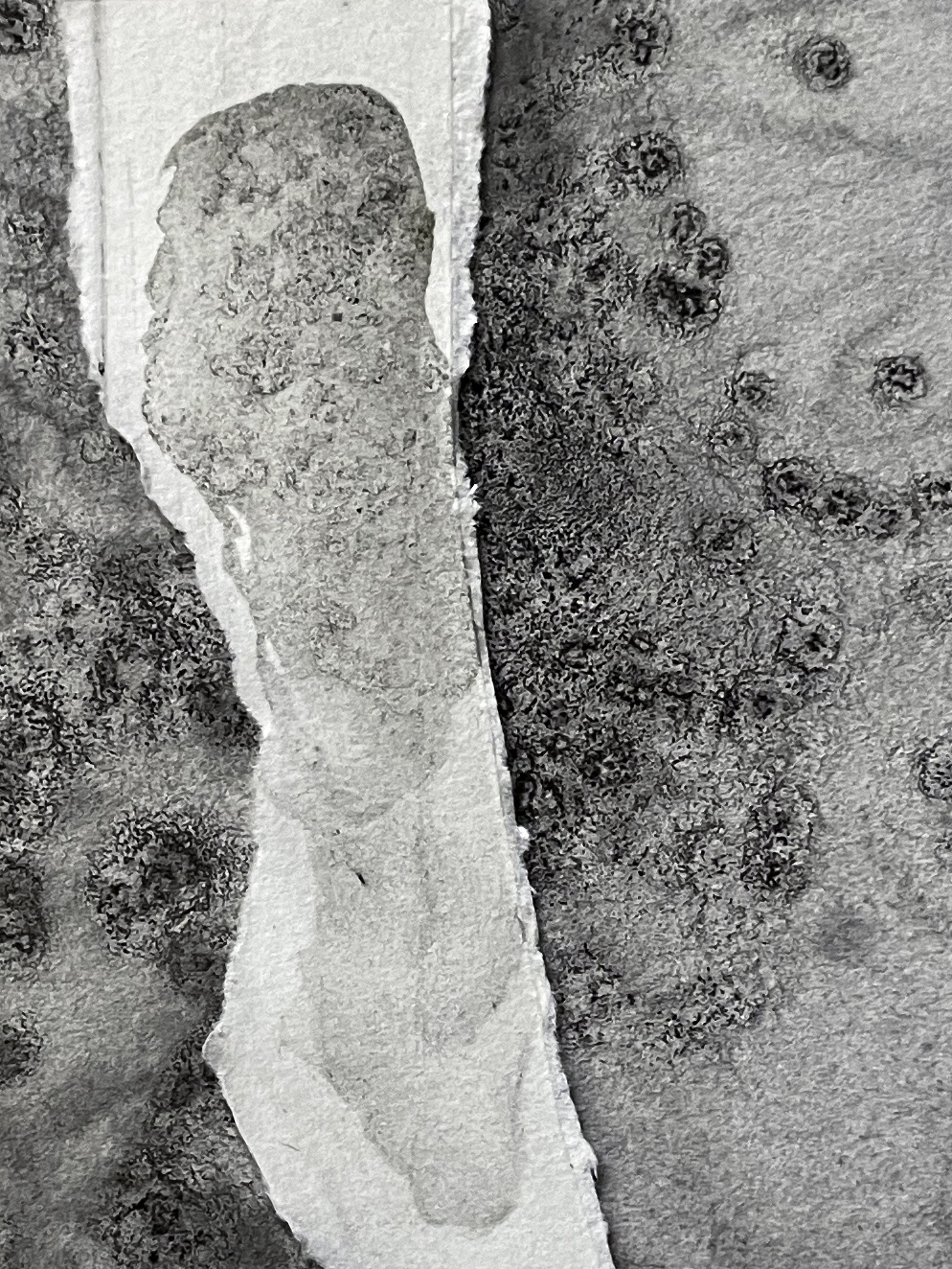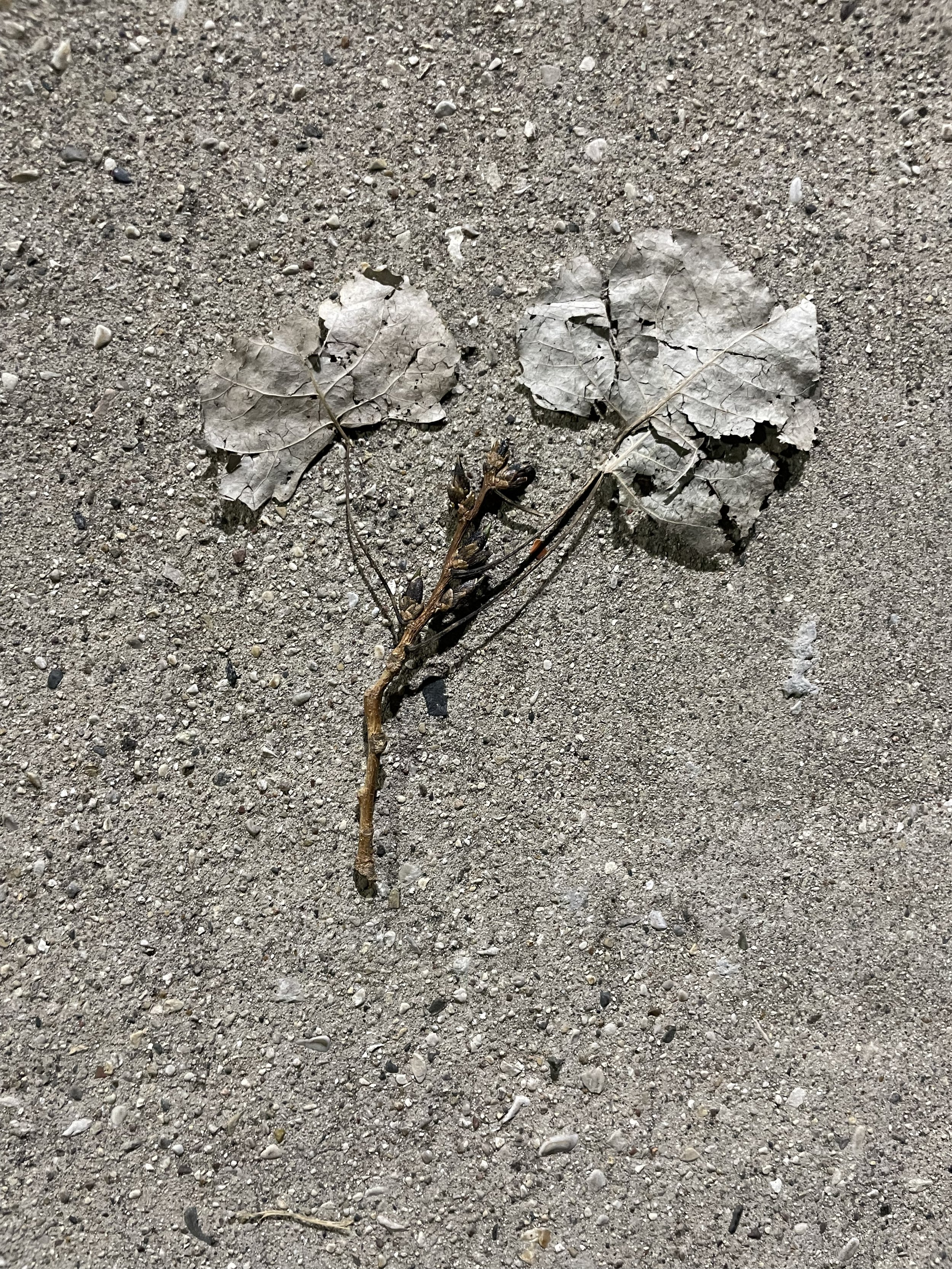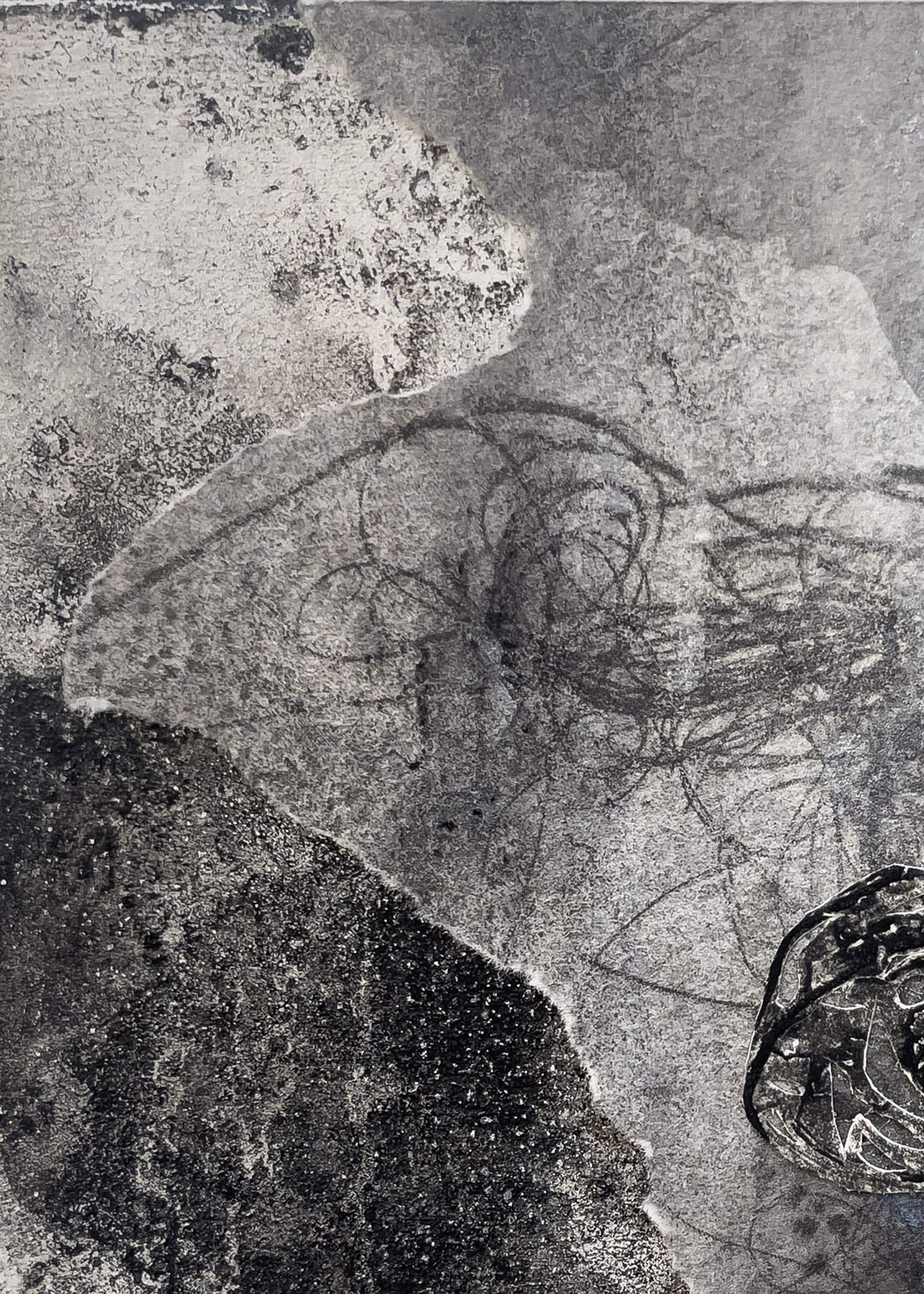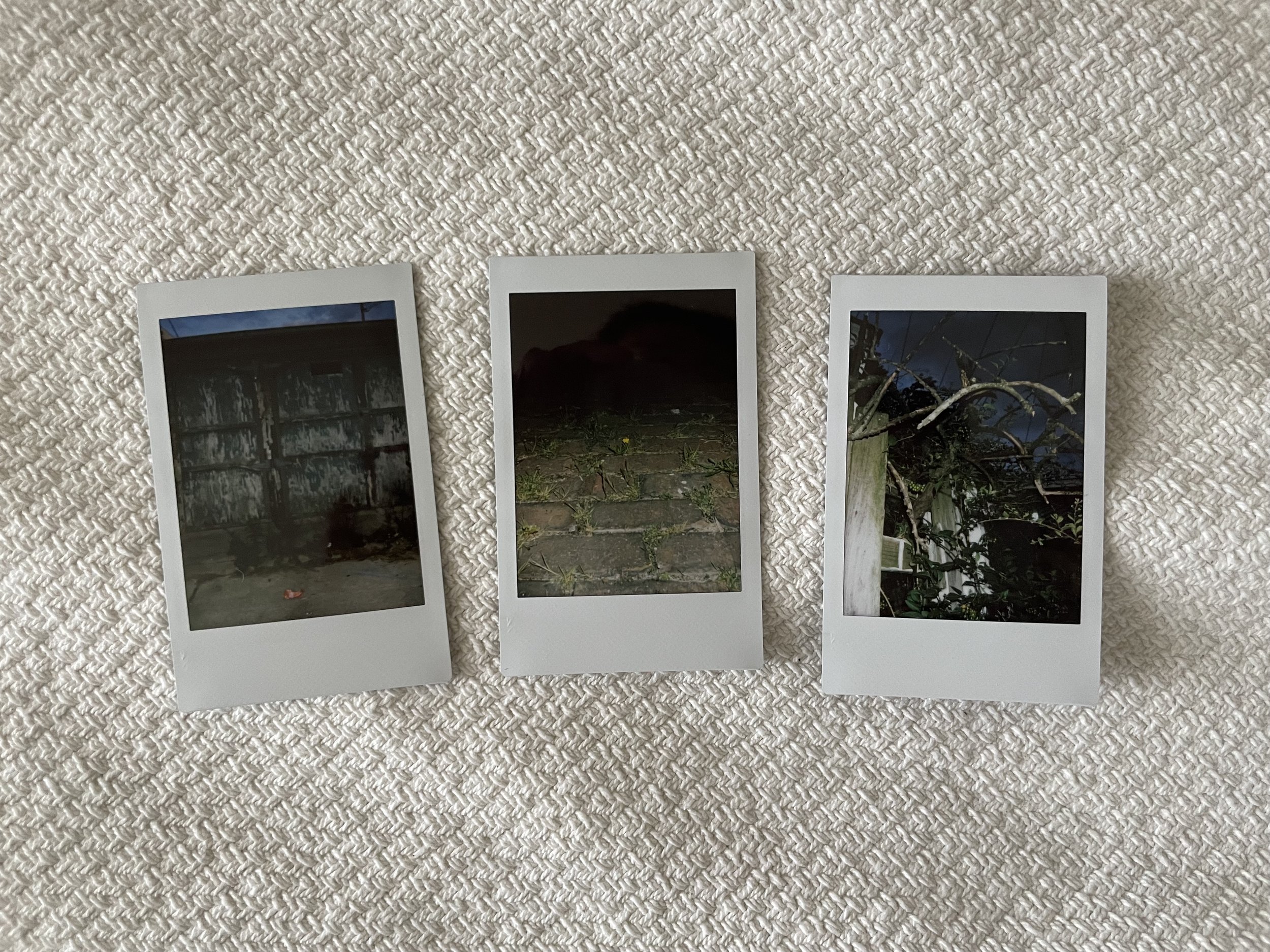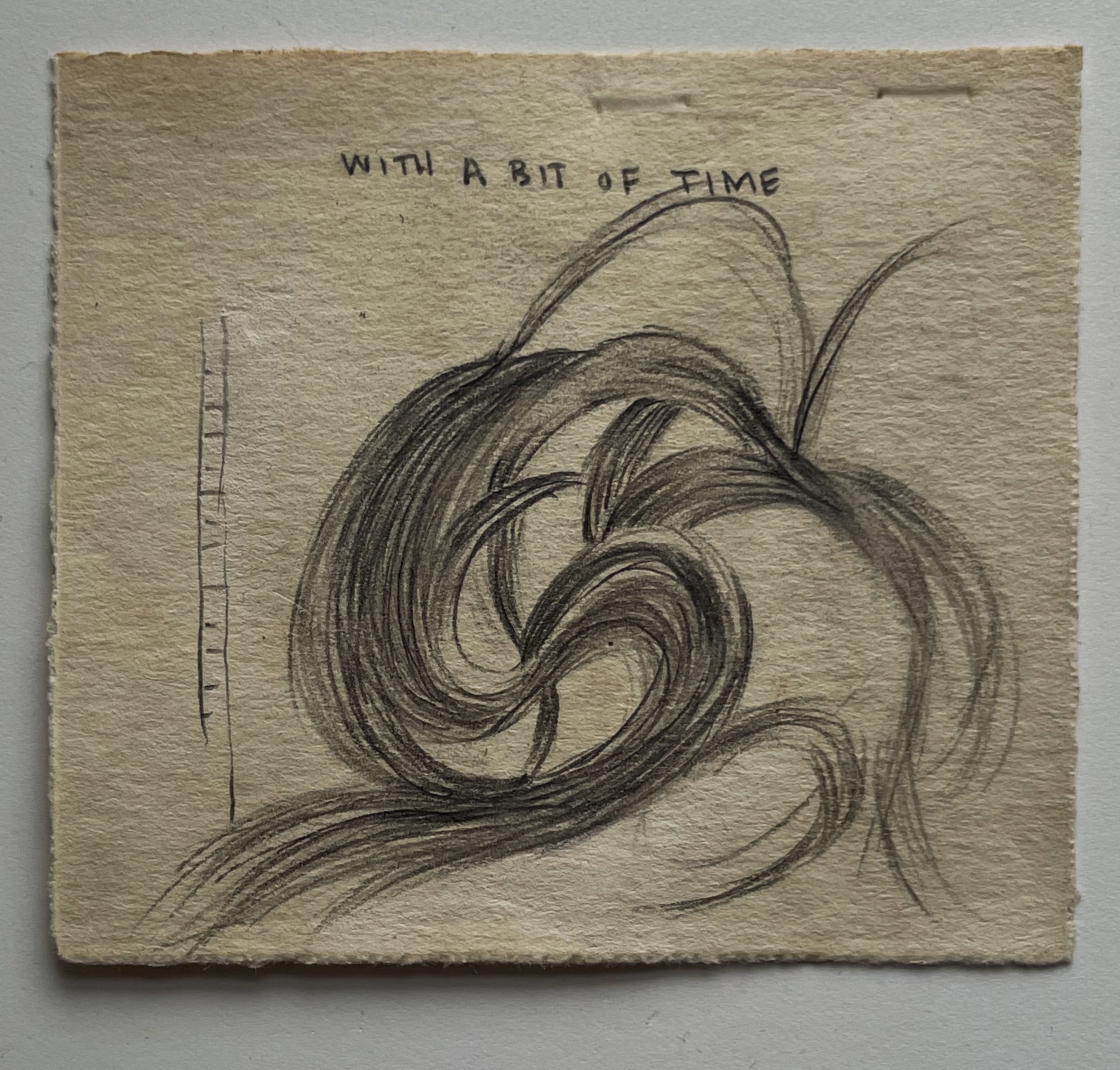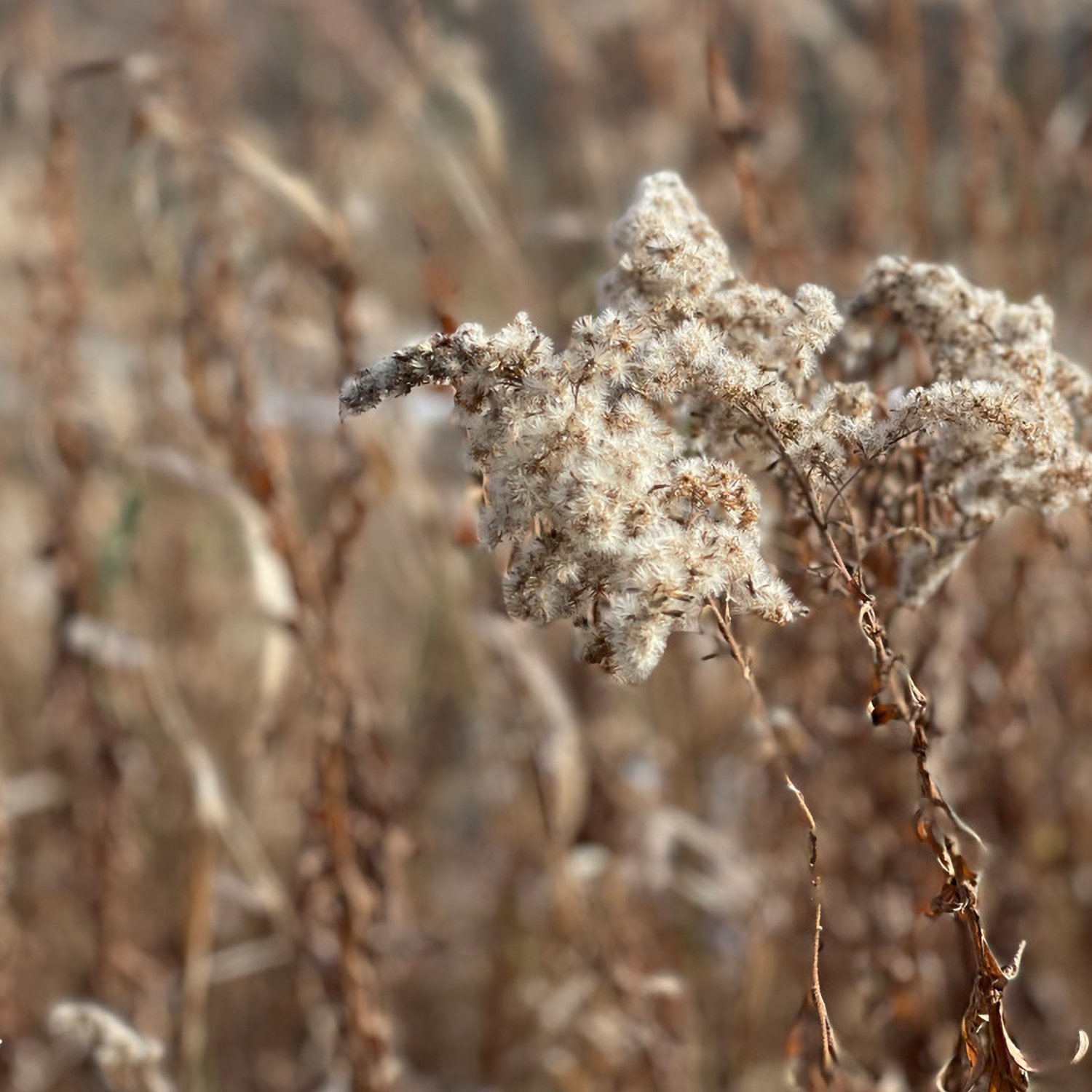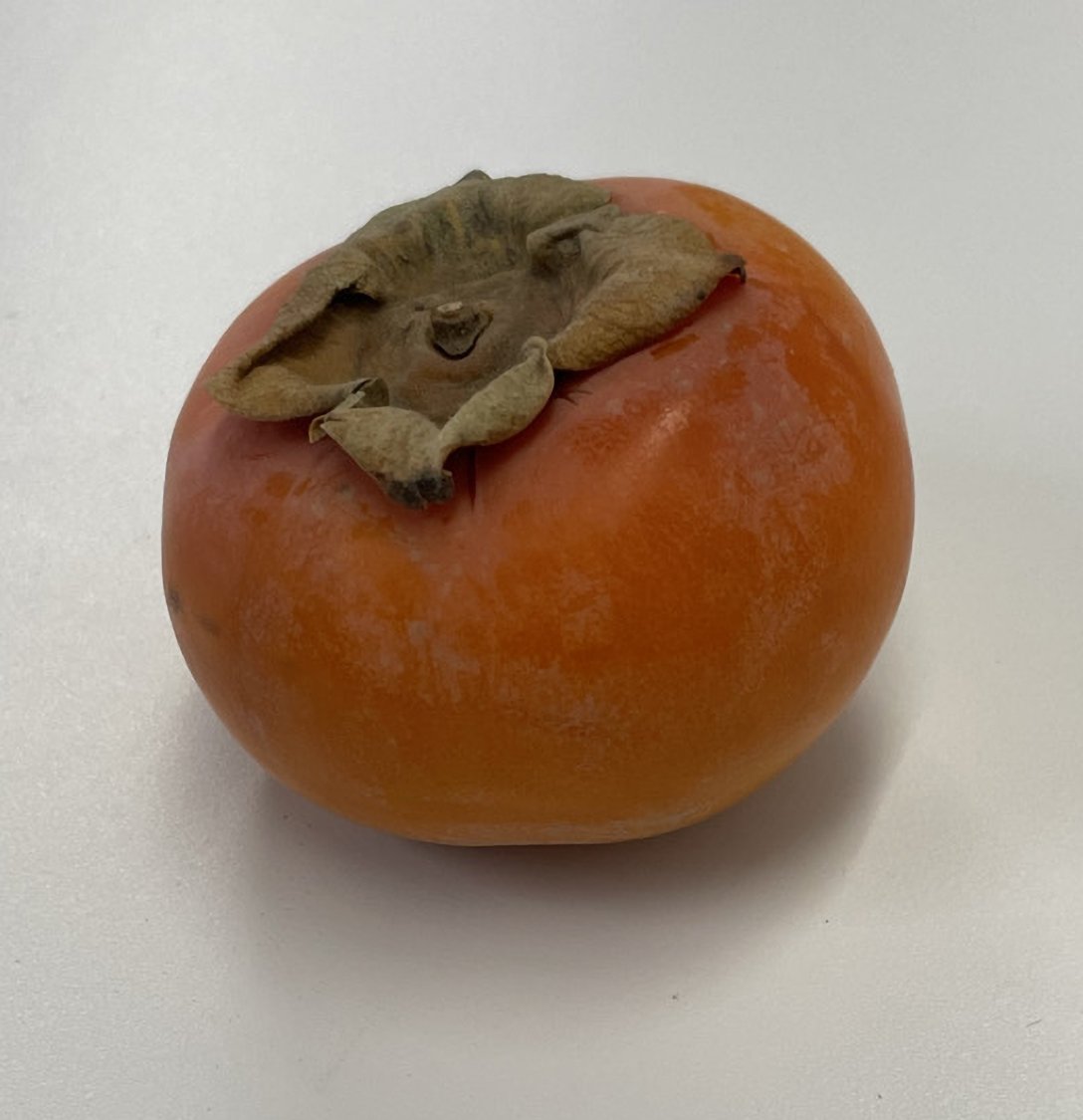What the Stone Remembers
I think of how we preserve what we cannot keep—how the stone remembers
what the flesh forgets.
Here, in sediment the color of mourning, a plant once pressed its green mouth to sunlight, before the earth swallowed it whole. I think of how we preserve what we cannot keep—how the stone remembers what the flesh forgets.
In Seoul, there is a woman whose hands once held me, whose milk I drank before language divided us like continents. Her fingerprints, fossilized in my marrow, a archaeology I carry but cannot read.
The paleontologist tells me how pressure creates preservation: weight over time equals permanence. I think of the weight of not knowing, how it presses my mother tongue into silence, leaves only the impression of what was once alive.
Ma, I whisper to the fossil, eomma, I say to the stone. The Korean spills from my mouth like sediment, each syllable a small burial.
As I carefully untangle my past from overtaking my present, I am aware of the delicacy of the fibrous nature in which it shreds, splits, and severs if not tended with the utmost care and respect—
how memory, like this ancient fern, can crumble at the wrong touch. How some preservation requires forgetting. How some forgetting is its own kind of love.
In the photograph, branching veins reach toward what was once sky. I trace them with my finger, these pathways to nowhere, and wonder if somewhere in Seoul, a woman is tracing the same lines in her palm, wondering if they lead to me.
The fossil does not answer. The stone keeps its secrets. But here, pressed between then and now, I am learning that some things survive not by staying whole but by leaving beautiful breaks.
Night Writing on My Mother's Good Ear
Mother's ear pressed to paper—
or is it the moon, listening
through the moth-eaten dark?
Mother's ear pressed to paper—
or is it the moon, listening
through the moth-eaten dark?
In sleep, I am both
the brush and the water,
the leaf turning silver
before it knows it will fall.
You appear
like calligraphy bleeding
through rice paper:
first the shadow,
then the word,
then the ache
of meaning.
Each breath sketches
another wing—
graphite dust
on my tongue,
teaching me
how things dissolve:
First the body.
Then the name.
Then the space
between your hand
and the morning
it reached for.
In this language
of smudges and stains,
even decay
holds light—
each petal
a door
closing
softly
on its own
ghost.
Portrait of Water Teaching My Tongue the Word for Home
the way this red line
pulled taut between
here and there
the red string
makes mapping
possible
Charcoal swirls like smoke
from my grandmother's kitchen—
the way she drew infinity
with her wooden spoon
in broth that held
our hunger.
needle threaded coves of branches
shelter my weaving loom
Here, water learns to speak Korean,
stuttering over stones
the same way I stumble
through 안녕
my tongue still foreign
to my own mouth.
Fallen logs become bridges
become barriers
become the way we cross
what cannot be crossed—
sticky humid moss grows
kin that never leaves home
And on concrete, the red string
manifesting connection for the future
thinner than my mother's patience
stronger than the ocean
that I crossed
leaving her there
in a country that tastes
like home and remembering.
I draw hair gathered
to interlace into nets
The thread knows what I am learning:
that home is not a place
but a current
that flows beneath
everything we touch—
the way water finds water
the way blood calls to blood
the way this red line
pulled taut between
here and there
the red string
makes mapping
possible.
In Korean, we say
빨간 실
red thread—
the invisible cord
connecting us
to what we're meant
to love.
I am still learning
to trust
the pull.
Self-Portrait as Tea Bag Split Open Over My Grandfather's Woodblocks
You said the concrete holds ghosts.
Every slab poured over another slab.
I.
Tea bag split open on the kitchen counter. Brown leaves scattered like ash like the wooden blocks your grandfather hid beneath the house. Each letter carved backwards so the truth could bloom forward.
A bee heavy with yesterday's nectar crawls across hot pavement. Block by block the city cooks itself to fever. Even she knows this is holy ground— where small wings still choose to land.
II.
You said the concrete holds ghosts. Every slab poured over another slab. The original roads buried but still breathing underneath.
Watch: the bee stumbles between sidewalk cracks where jade plant tea someone spilled last summer still stains the stone green as unspoken grief.
III.
In my mouth: bergamot bitter as the news that came in brown paper. In my mouth: words your grandmother carved into kindling when kindling was all she had left to speak with.
The wooden blocks scatter across my table like dice after empire played its hand. Each character gouged deep enough to survive burning. Deep enough to bleed ink onto paper thin as your mother's letters that never came.
IV.
Look at the nest: two white eggs waiting for heat that may never arrive. But she builds anyway— grass and wire and hope, mapping her small country in the space between branches that bend but refuse to break.
Your pencil traces the photograph's borders. Occupation lines drawn over and over until the paper nearly tears. But see: even now the eggs gleam like promises that some songs cannot be colonized.
V.
The tea bag bleeds brown into clear water. The bee lifts from concrete, disappears into the space between what was documented and what actually breathed.
In the pavement: blocks of memory cooling in evening air. In the nest: two white worlds waiting to crack open.
In my hands: these wooden letters that spell your name in a language they tried to bury beneath their roads.
Tomorrow someone will find these blocks, will wonder what stories the wood remembered. Tomorrow the eggs will hatch or they won't.
Either way— this insistence on building home in the unmappable spaces. This stubborn blooming between the cracks.
Brief Cartography
Mother—is that what I call the woman who held me for three days before the world took me away?
Mother—is that what I call the woman who held me for three days before the world took me away?
I am learning to perforate my own face. Each nail hole a day I didn't have with you, each tear in hanji paper
another way to breathe around the absence that shaped my lungs.
In the microscope of memory, your fingerprint becomes a country I visited once, briefly, like a tourist in my own skin.
Salt-soap rivers carve through marbled ink—this is how we make ourselves visible: by erasing what we never had.
I imagine you walking me to school, but instead I wrap paper around my own head, golden like the makeup
that makes me almost white, almost someone else's daughter. The gravel catches light the way your voice might have
if I had learned to listen in a language you gave me before they gave me English words for abandonment.
I draw my face looking at someone else's reflection— yours, perhaps, in a mirror I never learned to hold.
An orphan with your name but lighter dreams, whiter skin that never touched yours long enough to know
the true shape underneath. Brown as earth, stubborn as the stones that remember three days of your heartbeat
against mine. Tell me, what is the word for loving someone you barely knew but who lives in every breath?
What is the word for home when you are the distance between a mother's arms and the empty space
they left behind?
The Distance Between Shutter and Release
Three polaroids scattered
like prayer cards on cotton—
each frame a door
I cannot walk through
but must.
Three polaroids scattered
like prayer cards on cotton—
each frame a door
I cannot walk through
but must.
The water knows
what the camera
cannot hold: how light
becomes longing,
how distance
dissolves in silver halide.
I press my palm
to the photograph's surface,
still warm from development,
and suddenly—
I am kneeling
at the river's mouth,
moss soft beneath
my borrowed knees.
In the blurred edges
of what was captured,
I find what was lost:
the exact temperature
of afternoon air,
the way water
speaks in tongues
I almost understand.
Tonight, these images
arrange themselves
like stepping stones
across my bedsheets—
each one a small bridge
between who I was
at the water's edge
and who I am
learning to become
in this fluorescent room
where rivers exist
only in the space
between shutter
and release.
Water Refusing Its Own Tea
In the morning, I unfold yesterday's tea—cold now, a persimmon bruise spreading through hanji's breath.
In the morning, I unfold yesterday's tea—cold now, a persimmon bruise spreading through hanji's breath. Three days. That's all the mother my hands remember. Each fiber refuses me. I press graphite into what won't be pressed, dust settling like the ghost of her palm I never learned. This is how I practice porousness: watching color roll from the paper's edge like a body I was pulled from too soon. I crumple with the tenderness reserved for photographs never taken. In Korea, they have a word for the space between: jeong, which grows even in absence, especially in absence. My fingers search the hanji for her fingerprints, for the maker's mark that says you are from here, from this. But the paper holds only my own failed attempts at steeping— as if I could brew a mother from memory, from three days stretched across a lifetime of mornings like this one. I fold myself smaller, hoping to fit inside the space she left, to be both the question and its echo. Mother taught me nothing. So I teach myself: to fold paper is to fold time backward, to the moment before leaving became the only thing we shared.
Self-Portrait as Return Address
Do you know the sound a snail makes when it thinks no one is listening?
Do you know the sound a snail makes when it thinks no one is listening?
I draw it anyway. Small. Spiral. The way you taught me to hold a secret— cupped like water between two palms.
In Korean, to return is dol-a-ga-da but I can't roll the syllables without tasting your name.
Look— even this creature carries its house on its back. Even this blue wash of paint knows how to bleed beyond its borders.
They say if you're fixated on one thing you miss what's next but I keep drawing the same shell the same curve of spine disappearing.
Do you see how I've made a home of this waiting?
American Tongue
Do you know I draw spirals when I'm thinking of you?
Mother, I call you this though I never learned the Korean word for hunger.
The persimmon sits on my counter, orange as the sunrise you might have seen the morning you let me go.
With a bit of time— the goldenrod dies into something beautiful. Its seeds scatter like the questions I swallow each morning with my coffee.
Do you know I draw spirals when I'm thinking of you?
My hand moves in circles, consciousness enacting what blood remembers: the shape of your womb, the curve of your grief.
Today I ate a persimmon and tasted a country I've never seen. Sweet flesh dissolving on my American tongue.
With a bit of time, even orphans learn to mother themselves.
The flowers know this— how dying is just another word for becoming.

